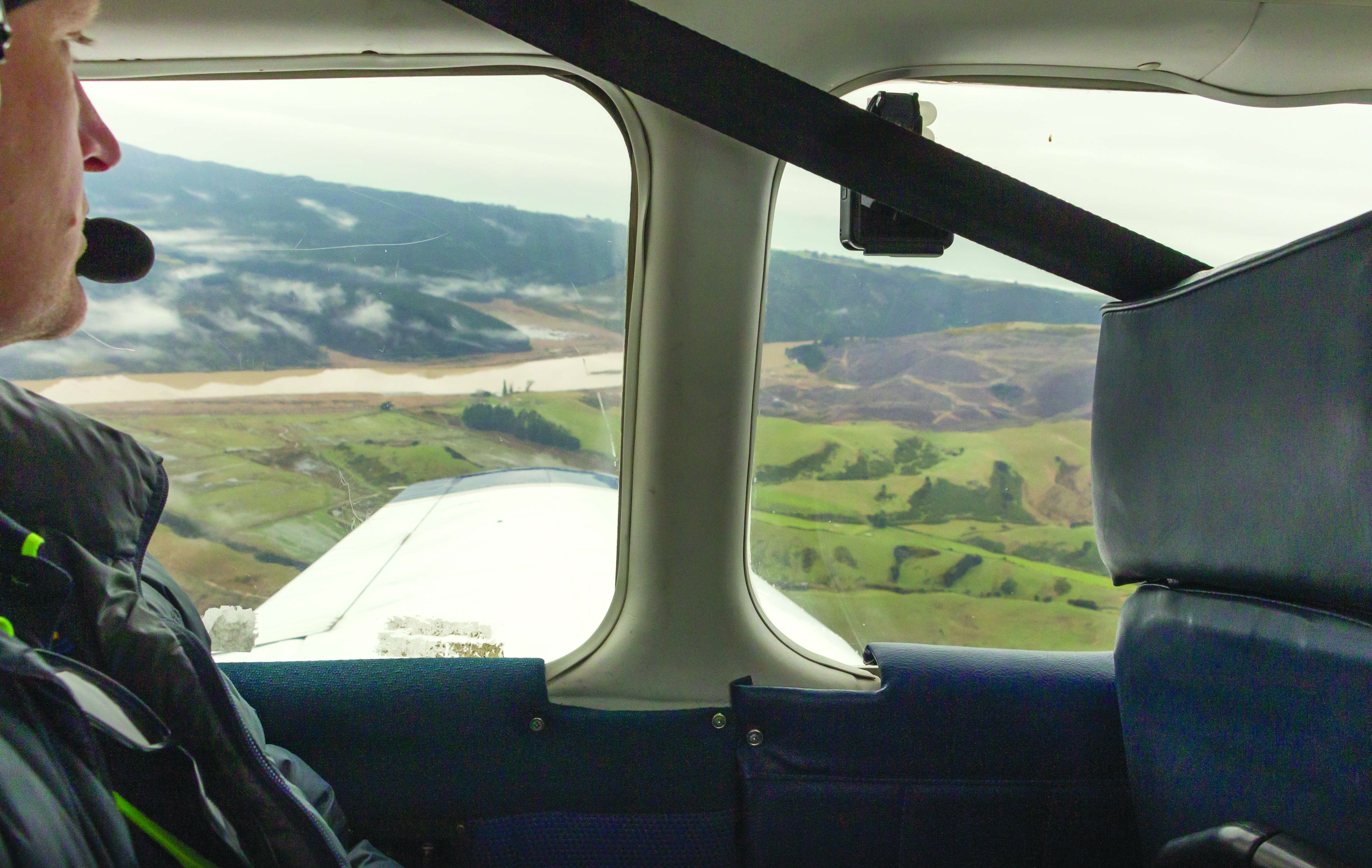ORC conducts annual winter flyovers to monitor the effects of land use on Otago streams, waterways and wetlands from the skies. Flights took place this year over two days in July and covered the whole region.
General Manager Regulatory Richard Saunders said the results were encouraging, with room for improvement around some farms’ winter grazing practices.
“Our compliance team saw positive changes from the air, and generally good compliance with our current Water Plan rules, which is fantastic.
“Staff identified nine properties to follow-up on the ground, with issues related to mobilised sediment and in some cases a lack of effective measures to keep sediment from entering nearby waterways.”
However, Mr Saunders said a lot of the winter grazing practices that were permitted this season would be non-compliant or require a resource consent in 2021.
“The new National Environmental Standards, which have arisen through the government’s Action for Healthy Waterways work, will tighten the restrictions around intensive winter grazing in future.
“These rules will impact a lot of Otago farmers, and they impact ORC as the consenting authority. We’re keen to work alongside farmers, organisations and catchment groups to help interpret and understand the rules, and to give practical advice for complying with them.”
Under the new rules for intensive winter grazing, farmers will need a resource consent from ORC to graze stock on forage crops in winter if they cannot comply with a list of criteria.
More information about these rules can be found here.


